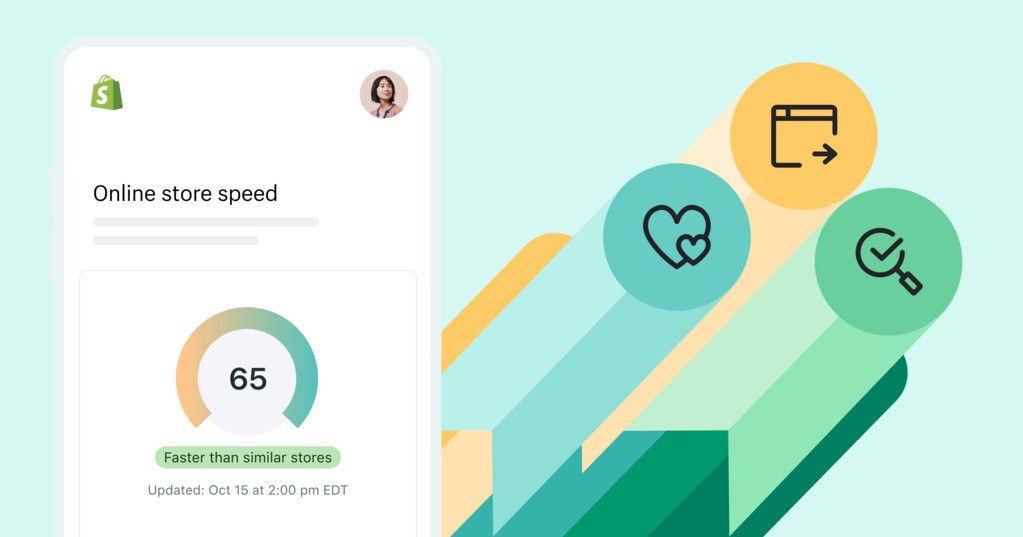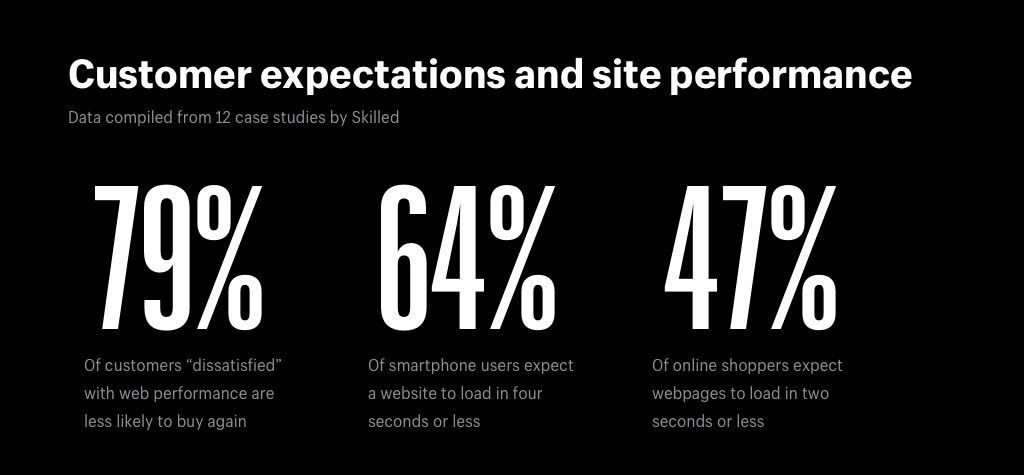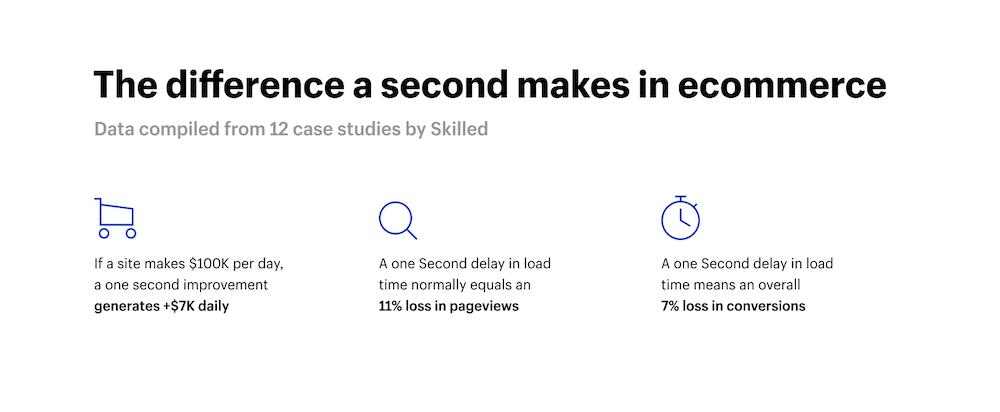
Did you know that 93% of people bounce off a website that doesn’t load quickly? With the paradigm shift in retailers and wholesalers going digital, online platforms have become increasingly important. When a potential customer lands on your website, the first impression is all it takes for him or her to form an opinion about your brand.
Imagine a visitor landing on your eCommerce website and waiting for a few seconds to actually see the contents of the page. It would not just repel this visitor but would also leave a poor impression of your brand.
What is Website Speed?
Website speed has become one of the most essential metrics to gauge the success of an eCommerce business. But, what exactly is website speed or page load time? In simple terms, website speed is measured as the duration of time between clicking a specific link and displaying the web page content on the requested browser.

For example, if you click on an eCommerce website link displayed on Google search results, you will land on the brand’s official website. The time taken for the dedicated page to load on your browser would determine the website page speed. The ideal measure of website speed is less than 2 seconds. Yes, that is all you get to impress your website visitors.
Why is Site Speed an Important Metric for your eCommerce Website?
Having established the definition of website speed, we now come to the most important section of this article, which talks about why site speed is so critical for eCommerce websites. Website speed often influences the purchase decision of your customers.

A visitor filling her cart with monthly groceries would prefer not to wait for the page to take 5 seconds or more for each item to be added to her cart. This would provide an unpleasant experience to the user, and could more often than not, lead to customers bouncing off your website.
Let us take a look at some of the negative effects of slow-loading websites -
1.Poor speed has effects on sales
Speed impacts sales, and thus, conversions.
Users tend to spend more time and money on websites that load faster than expected. If you have not paid attention to the site speed, then you are bound to lose out on customers and potential sales through them. The attention span of users is just under 3 seconds and that is your window of opportunity to help them convert and bring solid sales for your business.

2.Adverse impact on Google search ranking
Speed impacts Google search rankings, and thus, brand visibility.
It is important to understand that Google, one of the most popular search engines, issues a penalty to websites having low page load speed. After spending hours of hard work on building a website that users can visit and make purchases, it would be an utter shame to lose all that due to an oversight on the speed. Moreover, you lose out on the opportunity to rank higher on Google search results, which further affects your traffic and conversions.
3.Poor user experience
Speed impacts user experience, and thus, brand reputation.
Earlier, brick-and-mortar stores had long queues of shoppers waiting to step into their preferred store and buy items on display. This process evolved when eCommerce websites enabled the feature of shopping online with the comfort of sitting at home or in a cafe.
However, imagine your online visitors waiting in a similar fashion for your web page to load. That would leave a blot on their minds about your brand. Substandard user experience leads to a drop in revenue and reputation.
What are the Factors that Impact Site Speed?
Having realized how poor site speed can affect your business, it is important to learn about the key factors that influence site speed. It is said, unless you identify the root cause of a challenge, you will not be able to resolve the issue. So let us see how each of these factors listed below can influence your website speed.
1.Heavy visual effects
eCommerce websites are bound to have visual effects that are attractive and expressive in terms of showcasing the features of various products. However, it is good to be mindful of the fact that these visual effects occupy a huge amount of space and thus, take time to render. It would be good to balance the visual effects and optimize the same to meet the standard speed requirements.
2.Too many high-definition images
You may ask, how can I promote my products without pictures? Well, all we are saying is that you must optimize your images to suit the search engine and website specifications. It would be great if you could add Alt attributes, titles, and other SEO-friendly elements to your images and set them to the optimum dimensions for seamless loading.
3.Non-optimized videos
Videos are vital for eCommerce websites to demonstrate the usability of different products. However, if these videos are not optimized for SEO and website usability, they often hinder the experience of your customers. It would be advisable to ensure that your videos have apt titles, keywords, and descriptions so as to avoid page speed issues.
4.Excessive usage of plugins and scripts
While it is good to have plugins to enable additional features on your website, too many of them may hamper the speed and usability of the site. Several scripts on your website can lead to low speed and in turn, affect your conversion rates.

5.Several HTTP requests
Heavy images, stylesheets, and scripts take up a huge portion of the load time. These elements result in several HTTP requests, which further decrease their download speed. Simple design, sensible elements, and minimum redirects would encourage faster load times.
6.Remote location of the server
It is observed that if the server is geographically closer to the user, then the site speed is considerably high. In such situations, it is recommended to opt for CDNs or distributed delivery networks.
Further reading: Shopify Speed Optimization: 14 Factors for 99/100 Scores.
How to Improve Website Speed for Increased Conversions?
With an overview of the factors affecting the site speed, let us understand how to improve website speed smartly. Today, there are various website speed checkers available to measure website speed with accuracy. Not just that, with the world going mobile, it is crucial for your website to deliver an amazing experience with high mobile speed.
1.Select a speedy eCommerce platform
It is recommended to choose an eCommerce platform that offers solid infrastructure and accelerated downloading capabilities. For instance, Shopify has an inbuilt Storefront Renderer (SFR) tool that helps in accelerating the speed of your website. Shopify store speed usually meets the industry standards and is advisable for ambitious eCommerce businesses.
2.Go in for a Tag Management System
Sometimes, too many JavaScript codes can cause your website to load slowly. In such scenarios, it is good to have a tag management system like Google Tag Manager that can help you combine the tags into one JavaScript request.
3.Opt for premium hosting
Good hosting is the foundation of a strong website. Select a premium platform to ensure your website remains consistent even if traffic goes up, thus ensuring good loading speed.
Bottomline
With so much riding on-site speed, it is natural for you to be overwhelmed with where and how to start. That’s where we step in to lend you a helping hand and share our insights on how your website performance can be enhanced with optimized efforts.

When it comes to mobile which is the channel to provide 80% of eCommerce traffic, you can consider building a native mobile app. Because it's the fastest, the easiest to use and brings the most amount of revenue.
Connect your Shopify store, build a mobile app easily and start seeing fantastic results in a week. Visit Shopney today!




